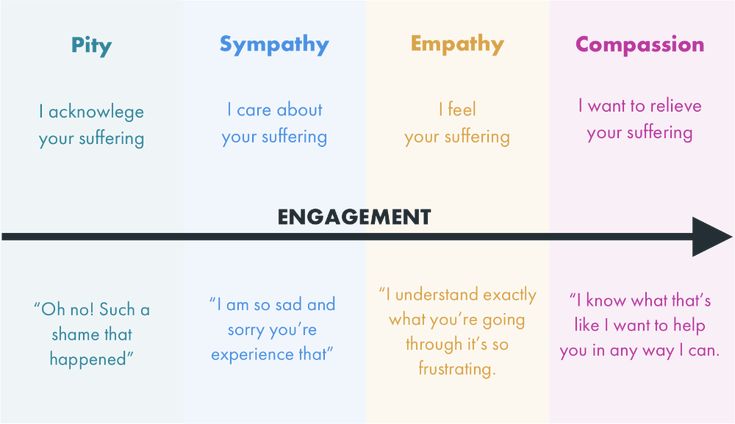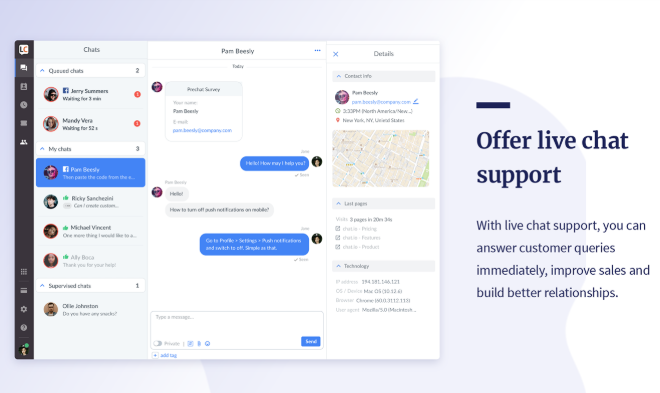Conversation help for introverts
30 Great Conversation Starters For Introverts
Skip to content
If you’ve tried to start a conversation with an introvert and only received one-word replies, you might be asking the wrong questions. We have 30 “instead of this, try this” conversation starters to work some magic on the introverts among us.
Why Are Conversation Starters For Introverts Different?Conversation starters for introverts are different because introverts often struggle with small talk. They value genuine connections and can find small talk draining. For an introvert, relationships take time to build, so don’t expect every introvert to answer deep and personal questions if they don’t trust you already.
Quick Tips for Extroverts- Talking louder and pushing for answers may give you the opposite result than you’re looking for. If an introvert feels pressured or bullied, they might withdraw.
- Be patient.
If an introvert is quiet, they may think deeply about the conversation. Or, they may not trust you yet.
- Include introverts in conversation by asking directly for their input.
- Introverts often need time to respond; asking quickfire questions can make them feel overwhelmed and pressured.
- Introversion ≠ shyness. Don’t assume all individuals like a conversation.
Some of these questions can feel random and out of the blue, so acknowledge that before asking the question. Preface these questions with:
- Here’s a fun question….
- I was wondering…
- Someone asked me this question the other day, which was so interesting. I wanted to ask you also…
Take 2000+ Conversation Starters to Go – FREE!
Never be left in awkward silence again. Take our best conversation starters with you so you’re prepared for any situation.
Save your favorites for quick access, browse by category, and quickly share any starter to other apps.
And the best part? It’s FREE!
Get Conversation HQ
Whether you’re at work or talking about work, skip the boring questions! Introverts may tend to be awkward, but they also love stimulating conversation. You can help set them (and you!) up for conversation success by asking these questions.
- Instead of: What do you do? Say: What’s been interesting to you recently?
- Instead of: We’re all going to grab lunch. Are you coming? Say: We’re all going to grab lunch; want me to hold you something? If your coworker regularly says no to group lunches, offer to bring something back for them.
- Instead of: What do you like to do? Say: Have you been learning anything new lately?
- Instead of: What do you like about your job? Say: Working on anything exciting these days?
- Instead of: Do you like your job? Say: How long have you been with your company?
Why asking an introvert about their plans stresses them out:
- You might be about to ask them to do something, and they’ve already planned to stay home and recharge.
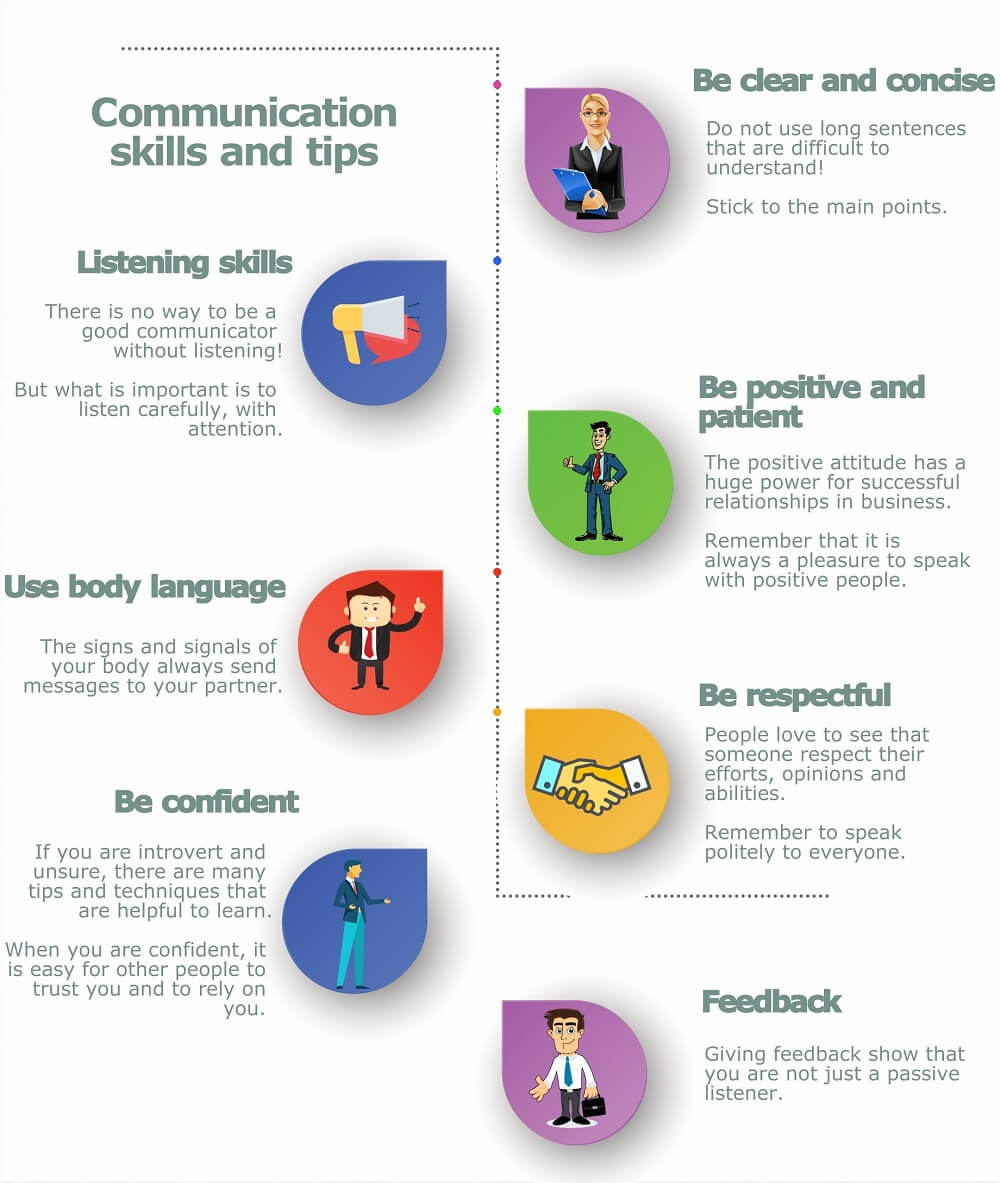
- They don’t want to look like they have no life beyond their cat and couch.
Give all the homebody introverts in the world a break by asking better questions than, “What are your plans for the weekend?”.
- Instead of: Any fun plans this weekend? Say: Reading anything interesting?
- Instead of: What’s your sign? Say: Do you have a pet?
- Instead of: What’s your secret skill or hobby most people don’t know about? Say: What are your holiday plans?
- Instead of: What did you do over the weekend? Say: What’s something you are really into right now?
- Instead of: Going out tonight? Say: Watching any good shows on Netflix?
Ask questions that are structured and even include examples in the question. Introverts often go blank when asked questions.
Introverts often go blank when asked questions.
Offering structure around the question can help them think of something to reply to.
Pro Tip: Introverts are often thinkers, so give them a minute to respond. Please resist the urge to fill the silence; wait patiently and look at them with interest.
- Instead of: Tell me about you. Say: What’s something recently that inspired you?
- Instead of: What’s your biggest regret? Say: What’s a lesson you learned that’s been important to you?
- Instead of: How are you doing? Say: What’s going on in your life lately?
- Instead of: What are your views on politics and religion? Say: How have your beliefs changed as you’ve gotten older?
- Instead of: What’s your story? Say: Working on anything exciting?
Asking too many questions can make an introvert shut down.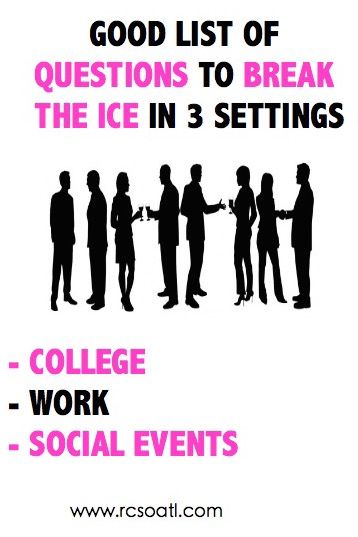 Instead of always starting with a question, try prefacing it with a short comment. This also shows you’re not going to interrogate them or dominate the conversation with all of your stories.
Instead of always starting with a question, try prefacing it with a short comment. This also shows you’re not going to interrogate them or dominate the conversation with all of your stories.
- Instead of: Don’t you get lonely as an introvert? Say: I love traveling, but I usually go with a group of friends. I’ve never gone solo-traveling, have you? (If yes, affirm how cool that is and ask what it’s like. If no, ask them what they think the significant differences are between solo travel and traveling with a group)
- Instead of: Do you have any upcoming travel plans? Say: I’ve always wanted to go to ___. Where have you always wanted to travel to?
- Instead of: What’s your favorite country? Say: I’ve always wanted to live in ___. What about you? If you could live anywhere in the world, where would you live?
- Instead of: What did you do over the summer? Say: I just went to ___, and I love/hated it.
 Have you been there? If yes, ask what they thought of it. If not, ask if they recommend another place to visit.
Have you been there? If yes, ask what they thought of it. If not, ask if they recommend another place to visit.
Instead of asking these common (sometimes annoying) questions, try flipping your perspective and use these unique conversation starters.
- Instead of: Why are you so quiet? Say, Have you ever attended a silent retreat? I’m curious what it’s like.
- Instead of: Are you sad? Say: What’s been keeping you busy lately?
- Instead of: Have you always been this shy? Say: Do you enjoy events like these?
- Instead of: What are you doing with your life now? Say: What habits or improvements are you working on?
- Instead of: How do you spend your days? Say: What’s your favorite splurge when you are having a bad day?
Talking about family can be risky, so pay attention to the nonverbals. If it looks like they feel uncomfortable, hedge on their answers, or even have a total lack of emotion, change the topic. Even better, ask them their opinion about family-related issues rather than asking about their personal experiences.
If it looks like they feel uncomfortable, hedge on their answers, or even have a total lack of emotion, change the topic. Even better, ask them their opinion about family-related issues rather than asking about their personal experiences.
- Instead of: Tell me about your family, Say: What is your birth order?
- Instead of: Where did you grow up? Say: What did you like about where you grew up?
- Instead of: What was your favorite toy growing up? Say: Do you remember _____ (furbies, beanie babies, nerfs)? (If they don’t volunteer a story about the toy, launch into your account and ask them follow-up questions like how old they were when that toy was popular if they still have that toy, etc.)
- Instead of: Do you have kids? Say: What’s your family like?
- Instead of: Do you have a partner? Say: Have you ever been on a blind date?
- Instead of: What’s your best childhood memory? Say: Where did you grow up–did you like it?
Learn more about what it means to be extroverted, What is Extroversion and the Advantages of Being an Extrovert.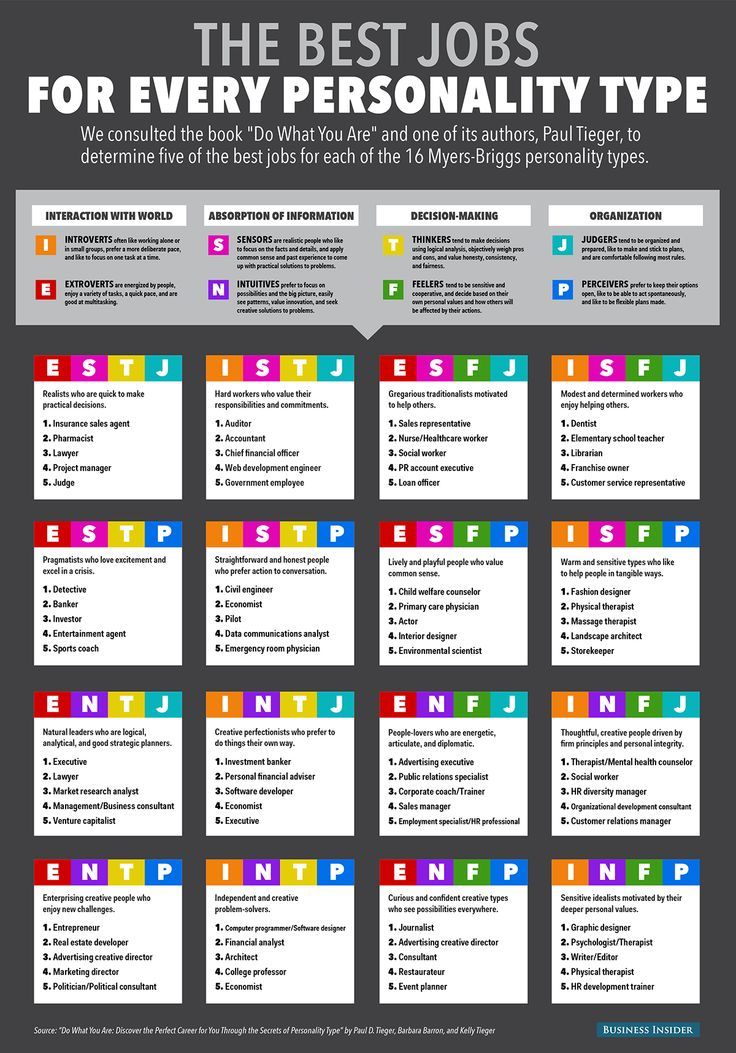
- Guides
- Popular
Read More in Communication
50 Conversation Starters for Introverts
As an introvert, talking to others doesn’t always come naturally. It’s hard and awkward. Often, when I go to speak, my words come out disjointed and jumbled. I struggle to put my thoughts in a logical order, so that other people can understand what I’m trying to say. I end up feeling very incoherent and a little embarrassed.
One of the reasons that conversation can be hard for introverts is that we overthink everything we are saying, even before we speak! We wonder if our words will come out the way we mean them to. How our words will make the other person feel. Or even worse, that our words will make us look stupid or uninteresting. Whew – all that overthinking can be exhausting!
It’s even worse when I do want to talk to someone, but I don’t know what to say. There’s been times in the past when I turned to talk to someone and my mind went blank.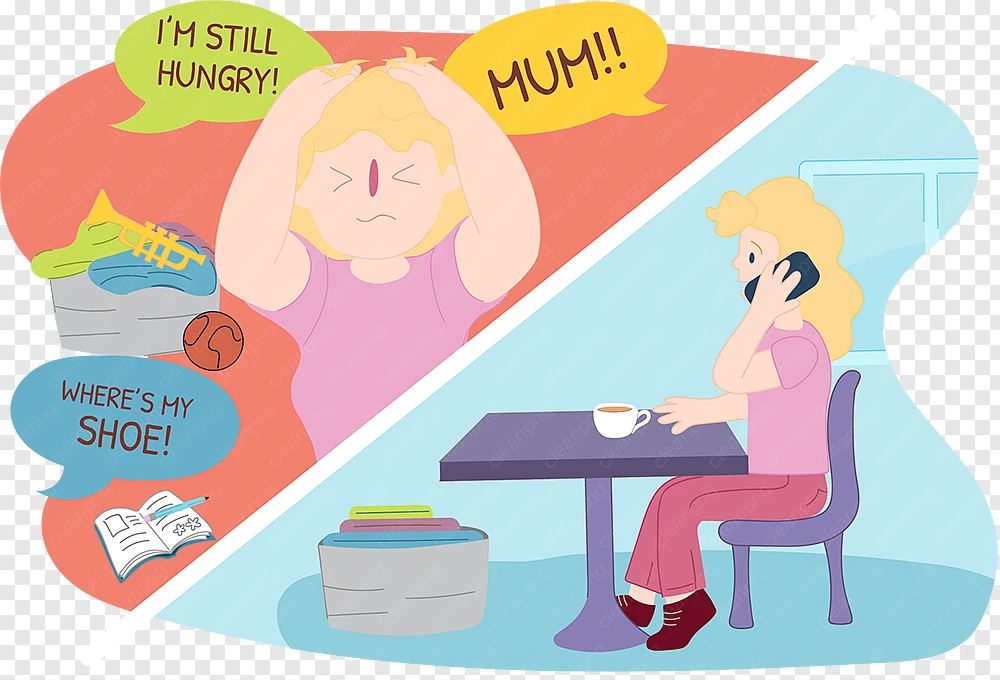 But I’ve come to realize that I don’t need my words to come out perfectly. It’s taken time, but I’m getting better at starting conversations. It helps that I’ve come up with a few different ways to start conversations.
But I’ve come to realize that I don’t need my words to come out perfectly. It’s taken time, but I’m getting better at starting conversations. It helps that I’ve come up with a few different ways to start conversations.
Here are some conversation starters you can use the next time you have to talk to someone and don’t know what to say.
Keep It SimpleHere are some standard questions to get you started.
1. Compliment the other person on something they are wearing – a jacket, a necklace, their shoes.
2. What are your plans for this weekend?
3. What did you do last weekend?
4. Do you have any kids? How old are they? What are their names?
5. Do you have any pets?
6. Do you have any siblings?
Travel and Vacations
Some of the best things in life come from experiences, including travel. Even if a person hasn’t travelled a lot, they probably have a place they would love to visit in the future.
7. Do you have any upcoming travel/vacation plans?
8. Where would you like to travel in the future?
9. What has been your favourite place that you have travelled to?
10. If you could live anywhere in the world, where would it be and why?
11. What do you usually like to do when you are on vacation?
12. Do you prefer packaged tours or booking everything yourself? Why?
13. What countries have you travelled to?
Conversation Tip #1: Avoid asking too many questions. It can make the other person feel like they are being interrogated! When you are asking the other person a question, think about how you would answer it. Share your answer to keep the conversation going.
Entertainment (books/movies/music)
Talking about entertainment is a classic conversation topic. The best part is that because new shows or movies are always coming out, you will always have something new to talk about.
14. What upcoming movie are you looking forward to being released?
15. What tv series are you watching?
16. What is your favourite move/tv show/book? Why?
17. What was the last book/blog that you read?
18. What concerts or theatre shows have you been to?
19. What type of music do you listen to? (pop, rap, country, etc)
20. What’s your favourite radio station?
Do you want an easy way to remember over 100 different conversation starters? If so, then check out these 102 Conversation Starter Cards – available now in my Etsy shop! They are so simple to use – simply download and print!
102 Conversation Starter Questions – Now Available on EtsyGetting to Know You Better
These are great questions to get to know a little bit more about a person. These questions go beyond the basics that are normally covered in conversation.
21. Where did you go to school?
22. How long have you lived in (insert name of town or city)?
23. Are you a morning person or a night owl?
Are you a morning person or a night owl?
24. What’s the first thing you notice when you meet people?
25. Are you an introvert or an extrovert? (You may actually surprise people when you tell them you are an introvert!)
26. What is your biggest fear?
27. What is your biggest pet peeve?
28. What is the biggest purchase you most regret?
29. What is your biggest regret in life?
Conversation Tip #2: Listen to what the other person is saying. Then, follow up with questions on what they have just said. It really is okay to ask! It shows that you are listening, which makes the other person feel like you care.
Hobbies
Hobbies are a great way to find out what people are interested in. You never know when you will meet someone else with the same hobbies as you.
30. Do you like to cook?
31. Do you have any hobbies? What are they?
32. Do you play any musical instruments?
33.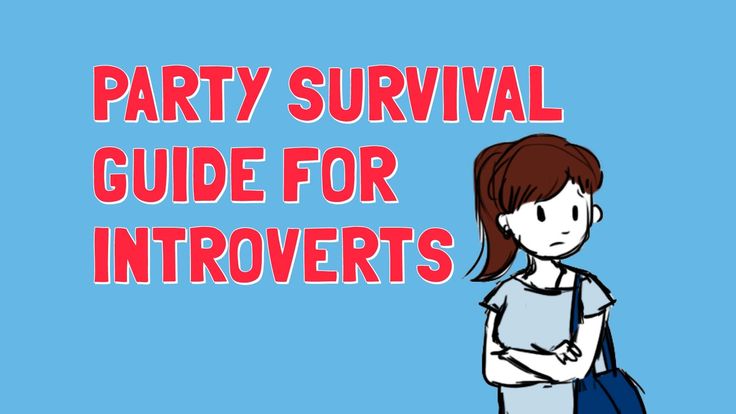 Have you ever taken any dancing lessons?
Have you ever taken any dancing lessons?
34. What do you like to do in your spare time?
Childhood Memories
It’s so much fun to learn what people were like as children. The answers can definitely surprise you at times!
35.What’s your favourite childhood memory?
36. Where did you grow up?
37. What was your favourite thing to do as a kid?
38. What was your favourite toy as a kid?
39. Did you have any pets when you were a kid?
Conversation Tip #3: Know when to stop. If the other person is giving yes or no answers, it may be a sign that they don’t want to talk or they don’t want to talk about that subject. It’s okay to ask if there is something they would rather talk about.
“If You Could”
These questions are so much fun! You can be silly, imaginative and so creative with your answers!
40. If you could have one super power, what would it be?
41. If you could choose your own name, what would it be? Why?
If you could choose your own name, what would it be? Why?
42. If you could be any animal in the world, what would it be and why?
43. If you could have one dream come true, what would it be?
44. If you could ask your future self one question, what would it be?
45. If you could live at any point in time (past, present, future), what would it be?
Favourite Things
Who doesn’t like to talk about their favourite things? I know I do!
46. What’s your favourite season?
47. What’s your favourite store to shop at?
48. What’s your favourite colour?
49. What’s your favourite restaurant?
50. What’s your favourite dish to order at a restaurant?
Conversation Tip #4: Make a conversation more interesting by sharing your unique perspective. The more you are interested or excited about what you are talking about, the more the other person will be interested.
Until my next blog post, here’s wishing you lots of joy and happiness!
With love,
How to communicate with an introvert and make friends with him
Communicating with an introvert is not easy. If extroverts are open to people and communication, introverts live in their own world and do not need someone else's company. In the article we will talk about how to communicate with introverts, what mistakes you should not make and how to still make friends with them.
If extroverts are open to people and communication, introverts live in their own world and do not need someone else's company. In the article we will talk about how to communicate with introverts, what mistakes you should not make and how to still make friends with them.
Contents
- How to communicate with an introvert
- How to make friends with an introvert: features of communication
- Starting a friendship with introverts: find out who they are
- Introvert communication boundaries
- Possible mistakes in communicating with introverts
- You will remain alone if you do not change
- Do not make a face like you don’t care about everyone
- You are closed in your own world and you don’t notice anyone but yourself
- How to behave with an introvert: 3 useful tips
- Conclusion
How to communicate with an introvert
An introvert is a person who does not openly express his thoughts and emotions. He is not sociable, but he is not closed off. You can communicate with him, but you will have to follow a number of rules:
He is not sociable, but he is not closed off. You can communicate with him, but you will have to follow a number of rules:
- People with such a temperament do not like surprises and surprises. Therefore, a meeting with them must be planned in advance. This will help introverts prepare themselves for socializing. Here we can recall Antoine de Saint-Exupery and his "Little Prince". The hero's friend, Fox, talked about the need to come to the meeting at the same time. Then you can have time to prepare your heart. This is exactly what a closed person needs.
- Communication with an introvert cannot be quick. He needs time to think about what he heard and formulate a response. So don't expect an instant response. And it's not just about answering questions. We are also talking about gifts here. To wait from an introvert for something other than gratitude will not work. He will show his admiration or joy at the next meeting, after he realizes what happened.
- Introverts react sharply to the inattention of the interlocutor.
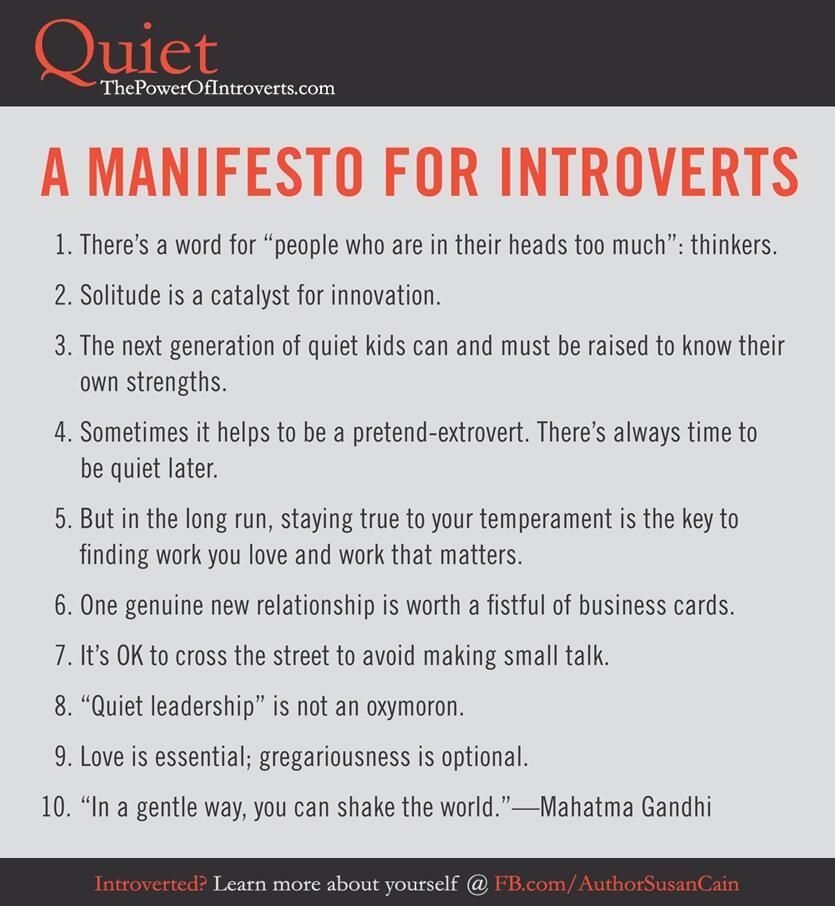 Therefore, if such a person began a monologue (which happens extremely rarely), you need to carefully listen to him. If the conversation is interrupted, it is unlikely that the introvert will return to the conversation.
Therefore, if such a person began a monologue (which happens extremely rarely), you need to carefully listen to him. If the conversation is interrupted, it is unlikely that the introvert will return to the conversation. - In communicating with people who are prone to introversion, special attention should be paid to words. As stated above, introverts do not express feelings and emotions. They will never show displeasure or resentment from what has been said. Therefore, in a conversation with them, you should carefully consider each phrase.
- Rarely are introverts ready to take the first step. This does not indicate their pride or disdain. They are afraid to seem ridiculous or to get into a mess. Therefore, you will have to act independently, taking steps towards them.
- For introverts, it is important that the interlocutor is not only interested in his words, but also supports the conversation with questions. For example, asking about how the day went, you can ask about the most significant events in it.
 Or, having learned that a person attended a concert, ask what he liked there the most.
Or, having learned that a person attended a concert, ask what he liked there the most.
Despite the fact that introverts expect interest and do not tolerate inattention, they do not like it when they climb into the soul. Therefore, if a person answers evasively or briefly, you should not try to talk him.
Rules will help an extrovert communicate with an introvert. In this case, the feelings of neither one nor the other will be infringed.
Separately, it is worth mentioning how to communicate with an introverted man. There are a number of tips:
- do not rush things;
- do not press;
- give time to open;
- support with words and actions;
- listen carefully and try to understand;
- in any situation to remain sincere.
It costs about the same to communicate with an introvert guy. Men at any age are more secretive and withdrawn than women.
How to communicate with an introvert girl? The principles of communication are the same as in the previous case. Do not ask why she spends her evenings alone with her favorite book in her hands. For a meeting, it is better to choose not crowded places. The girl should not be the center of attention. In such situations, introverts close in on themselves and try to leave faster.
Do not ask why she spends her evenings alone with her favorite book in her hands. For a meeting, it is better to choose not crowded places. The girl should not be the center of attention. In such situations, introverts close in on themselves and try to leave faster.
How to make friends with an introvert: features of communication
As mentioned above, introverts do not like inattentive and at the same time overly curious interlocutors. Therefore, before you start communicating with them, you need to get to know their character better.
Beginning friendship with introverts: find out who he is
Introvert people, divided into four groups:
- Thinking type. In conversation, phrases are often used: “I think” or “It seems to me”. Answer questions after careful consideration. They can talk about absolutely any topic. But they prefer something deep and intellectual. An introvert is not interested in discussing who and in what clothes came to work today.
 They find such conversations boring.
They find such conversations boring. - Feeling type. In a conversation, feelings and sensations are often mentioned, thereby linking their words and emotions. Such people are able to show compassion, experience and sympathize. They can also talk about their experiences, but they will do this only after they see that there is no callousness in the interlocutor.
- Sensing introverts. In another way they are called people-detectors. Introverts with this personality type notice everything around them, including smells, colors, gentle breezes, touches, and more. For them, bad taste, lack of style, bright colors and unpleasant odors are alien. Therefore, a person of this type is unlikely to go towards untidy people.
- Intuitive introvert. He loves mysticism and everything connected with it. What is happening around connects with fate and predestination. For such people, spiritual needs often take precedence over physical ones. Therefore, they forget to eat or do not sleep for a long time.
 The main requirement of intuitive introverts to the interlocutor is not to deceive. This is especially true for those who do not accept their views.
The main requirement of intuitive introverts to the interlocutor is not to deceive. This is especially true for those who do not accept their views.
Interestingly, now psychologists have singled out another type of people - ambiverts. They combine the qualities of introverts and extroverts. To communicate with them, you need to find out which character warehouse comes first.
Communication boundaries of introverts
Many people find it difficult to get along with such people. After all, to communicate with them, you need to adapt to your mood, go first to meet, or even put up with the lack of desire to talk. However, in reality, everything is much simpler. It is enough just to remember two principles:
- Under no circumstances should the boundaries of the internal space be violated. It is worth remembering that personal experiences for introverts are sacred. Encroachment on them is regarded as an insult.
- Always and everywhere you need to show respect.
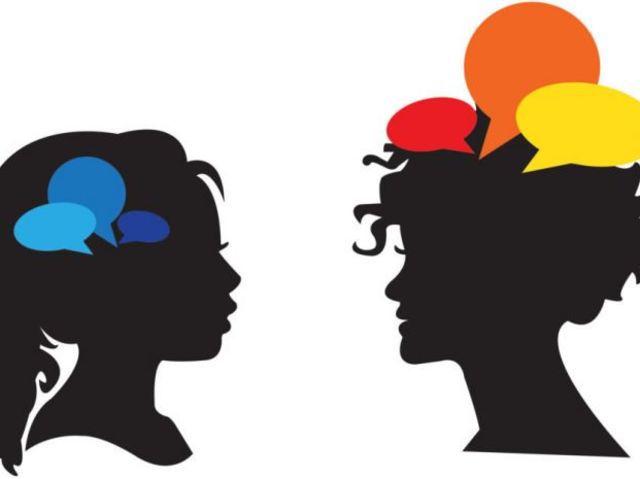 It should be taken for granted that an introvert sometimes wants to be alone. If you respect his needs and desires, he will do the same in response.
It should be taken for granted that an introvert sometimes wants to be alone. If you respect his needs and desires, he will do the same in response.
These principles should always be kept in mind. This will make it much easier to communicate with introverts. Seeing the interest and attention from the outside, they will be happy to make contact, as well as share their knowledge, experience and opinion.
Possible mistakes in communication with introverts
Psychologists identify three serious mistakes that should not be made in dealing with an introvert. They will not only cross out attempts to develop friendship with him, but can also be perceived as an insult.
You will always be alone if you don't change
This phrase offends introverts and makes you worry about your character for hours. They love to be alone, but they don't want to live their whole lives alone. Similar statements make you think of yourself as an inferior person, and fight with fictitious shortcomings. The latter, unfortunately, will not bring any results.
The latter, unfortunately, will not bring any results.
Don't make a face like you don't care about anyone Therefore, it seems that a mask of discontent, depression or anger has frozen on their face. However, in reality this is not the case. The facial expression of such people has nothing to do with their mood and thoughts.
You shut yourself up in your own world and don't notice anyone but yourself
This phrase is partly true. However, introverts are not as selfish as it seems at first glance. There are people for whom they are ready to lay aside their deeds and principles. What happens to the rest, they are not interested. In addition, they really do not like to impose their society.
If someone thinks that an introvert does not live up to their expectations, then it is only that person's problem. It is pointless to try to change something, as well as to indulge yourself with illusions.
How to behave with an introvert: 3 useful tips
To summarize all of the above, there are several rules for communicating with an introvert:
- No need to be intrusive.
 There is no place for coercion in communication. Everything must be voluntary. If an introvert shows that he is not ready to talk, you do not need to force him. Let him be alone with himself.
There is no place for coercion in communication. Everything must be voluntary. If an introvert shows that he is not ready to talk, you do not need to force him. Let him be alone with himself. - Questions must be open-ended. It is necessary to ask in such a way that the introvert answers not in monosyllables, but in detail. For example, you should not ask a question about whether a person had breakfast or not. It is better to find out what a person would like to eat for breakfast.
- Meetings must be agreed in advance. Introverts do not like unexpected guests or sudden offers to go out for a walk.
From the outside looking in, these rules look like good upbringing. They can be used in communication with any person.
Conclusion
Before you start communicating with introverts, you need to understand the peculiarities of their character, understand what they love and what they will not tolerate in any case. Compliance with the rules of communication with them will help you find a true friend who at any time will not only listen, but also come to the rescue.
Networking for introverts | Media Netology
Skip to content
Search for:
Career
August 30, 2018
August 30,
Ksenia Verbakhovskaya, a commercial author, told the Netology blog how an introvert can write a scenario for events and build effective networking.
Imagine that you are at a business event. Look around: someone is vividly discussing the latest news, and someone does not look up from the smartphone and reluctantly supports the conversation. The last type of person can be said with a high probability that he is an introvert.
It is more comfortable for introverts to communicate in a narrow circle, because after communicating with the external environment, they restore moral strength for a long time, and the world came up with conferences with large crowds of people and the word "networking" - something between the art and science of building relationships, with the help of which can solve life and business issues.
It is no longer possible to lead an unsociable lifestyle and at the same time be professionally successful in the 21st century. The reason introverts don't jump into the fun and conversation at conferences and business meetings is because these people are wired differently.
When communicating, introverts spend energy, while extroverts, on the contrary, accumulate it. In her TED talk, writer Susan Cain puts it this way:
“Introversion is not synonymous with shyness. It is more about reactions to external stimuli, including social ones. Introverts feel calm and secure in a quiet place, while extroverts crave and feed off those stimulations.”
The advantage of solitude is that it is a good state for creativity and hard work. Minus - alone, even geniuses find it difficult to promote their ideas to the masses. In networking, new projects are born, fruitful alliances are made, and opportunities to move up the career ladder appear. I will share a couple of tips on how not to wither away from the main banquet table and start creating a network of useful contacts.
I will share a couple of tips on how not to wither away from the main banquet table and start creating a network of useful contacts.
The result of such an assessment in introverts most often is an A4 sheet that is not completely filled out. Although these contacts are deep and strong, they are very few. Analyze them through the "value filter" by asking yourself a few questions:
- whether your connections are mutually beneficial;
- what industry they are from;
- whether they will help you in your professional advancement;
- can you rely on these people;
- how long ago you talked to each of the contacts.
If, while evaluating your acquaintances, you found contacts from past jobs, do not rush to cut off contact with them. However, check the amount of time devoted to these people.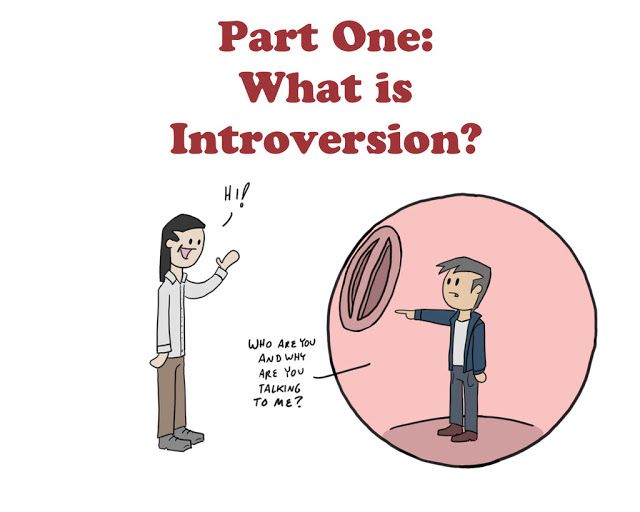
Be strategic in your networking - allocate time and attention between the most and least important people.
Article for Inc. Entrepreneurs Karl Stark and Bill Stewart told how to map networking. In short, the map will allow you to determine:
- who are the persons who will give access to a wider network of contacts;
- who are the current and potential gems of your network;
- candidates for business cooperation.
Whether you're happy with your social circle or not, remember that it must remain dynamic. Continue to go out, even if you are sure of your position. This will help not only in expanding contacts and horizons, but also in pumping social abilities so that the word “networking” no longer throws you into a cold sweat.
- Soft skills are cross-professional skills that help any specialist in any industry to be in demand
- Can you improve your skills to quickly solve problems, convincingly argue your position, build communication competently - without unnecessary emotions and stress?
After assessing the circle of acquaintances, you will understand what networking is and why it is needed. The next step is to change the negative perception of this process.
The next step is to change the negative perception of this process.
There are many strategies for helping introverts be at ease and effective at professional meetings, but they all come down to one condition: take control.
Get out of your shell and become actively involved in making things better.
- Find out the format of the event and the people who will be there.
- Make an appointment with interesting or familiar people.
- Gather information about them or start talking before the rally - this way you skip the awkward stage of small talk and can get to the point of the conversation in person.
- Prepare questions or general topics in advance.
- Rehearse the story about yourself - it should be informative and concise.
- Set yourself a specific goal - this will allow you not to be scattered at the event itself and not waste time.

- Go one-on-one - networking works great with one-on-one conversations.
- Use the "Help of the Hall": bring a friend with you or find a lonely person in the crowd - so you will immediately be insured against awkward silent wandering.
- Take breaks - introverts get exhausted from prolonged communication, give yourself time to recuperate and go out for some fresh air.
- Use your introvert strengths to listen, share and reflect. People love to be listened to; they start to trust when they are told about their own affairs; respect when a person speaks to the point.
“At the same time, remember - and this is very important - that you cannot remind a person what he can do for you; instead, always focus on what you can do for him. Only in this case, he will be ready to continue communication with you.
Keith Ferrazzi, "Never Eat Alone"
Stay connected. Ideally, if you managed to conclude at least one deal right at the event. The rest of the contacts need to be reminded of themselves after the rally within two to three days. Write a letter, send a request to Facebook or LinkedIn. When you keep in touch after the event, you show your reliability.
For an introvert, the possibility of Internet networking is a salvation, because it is more convenient and comfortable to write rather than talk. The development of the virtual world, the presence of professional communities and websites have greatly simplified the establishment of business relationships for introverts. However, live networking will not replace this.
Approach networking not as an unpleasant obligation, but as an investment in the future. Introverts are excellent interlocutors, you just have to choose a strategy of behavior.






